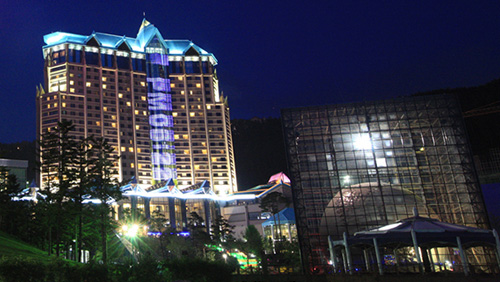International brokerage JP Morgan Chase & Co. is feeling bearish on the prospects of South Korean casino operator Kangwon Land Inc. next year, when the government will reportedly start implementing a revenue cap for all forms of locals-focused gambling.
 JP Morgan analysts warned on Sunday that the already-burdened Kangwon Land will face additional pressure from the government’s Gambling Industry Reform Plan.
JP Morgan analysts warned on Sunday that the already-burdened Kangwon Land will face additional pressure from the government’s Gambling Industry Reform Plan.
“The plan includes four major initiatives, one of which effectively targets Kangwon Land by redesigning the revenue cap policy (RCP) with heavier penalties and stricter legal enforcement,” analysts DS Kim and Sean Zhuang said, according to GGRAsia.
South Korea’s revenue cap isn’t really a new policy, according to JP Morgan. The plan was first introduced by the country’s National Gambling Control Commission in order to regulate legal gambling industries available to locals.
In a nutshell, the revenue cap is based on a proportion of the country’s gross domestic product. Since 2014, this cap has held firm at 0.54 percent of GDP.
Interestingly, Kangwon has been able to ignore the revenue cap. JP Morgan pointed out that Kangwon’s actual 2016 revenue of KRW1.63 trillion (US$1.5 billion) surpassed the KRW1.44 trillion ($1.3 billion) revenue cap set by the government that year.
The international brokerage believes that Kangwon will be forced to curb its revenue even further to avoid further scrutiny from the government.
“Even in a bull-case scenario of the plan failing to pass the National Assembly, we believe Kangwon Land would still try to lay low and curb revenue to avoid further regulatory reaction, basically repeating what it’s done this year,” JP Morgan said.
Kangwon had been in the government’s radar for the past three months after its name was dragged into a corruption scandal over reports that 95 percent of its staff were hired due to their political connections.
Early this month, ex-Kangwon Land CEO Choi Heung-jip was arrested on charges of influence peddling in connection with the hiring of certain people at the request of politicians and local bigwigs, including Rep. Yeom Dong-yeol and Rep. Kweon Seong-dong of the conservative Liberty Korea Party.